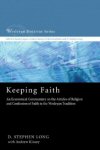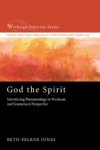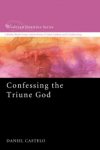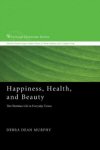Wesleyan Doctrine Series (4 vols.)
Digital Logos Edition
Overview
The Wesleyan Doctrine Series seeks to reintroduce lay Christians of the Wesleyan tradition to the beauty of doctrine. Distinctively Wesleyan, it draws on the key sources for Wesleyan teaching: Scripture, Liturgy, Hymnody, the General Rules, the Articles of Religion, and various Confessions. It does this with a profound interest and respect for the unity and catholicity of Christ’s body, the church, which is also distinctly Wesleyan. This series supplements the Wesleyan tradition with the gifts of the church—catholic, ancient, and contemporary. These volumes are intended for laity who have a holy desire to understand the Wesleyan faith.
For a deeper understanding of the Wesleyan tradition check out the John Wesley Collection (29 vols.).
This title is included in the following collections
You can save when you purchase this product as part of a collection.
Logos 8 Methodist & Wesleyan S...
$39.99$39.99Logos 8 Methodist & Wesleyan B...
$89.99$89.992025 Wesleyan Silver
$349.99$279.99Logos 8 Methodist & Wesleyan S...
$349.99$349.99
- $849.99$679.99
- $849.99
- $849.99
- $1,499.99$1,199.99
- $1,499.99
- $1,499.99
- $2,999.99$2,249.99
- $2,999.99
- $4,749.99$3,562.49
- $4,749.99$3,562.49
- $10,999.99$8,249.99
- $11,593.84$8,499.99
- $23,999.99$17,999.99
- $21,749.99
- $24,999.99

Key Features
- Offers discussions of doctrine targeted to lay people
- Explores Wesleyan doctrine from an ecumenical perspective
- Features highly respected contributors from the Wesleyan tradition
Product Details
- Title: Wesleyan Doctrine Series
- Series: Wesleyan Doctrine Series
- Publisher: Cascade Books
- Volumes: 4
- Pages: 514
- Christian Group: Methodist/Wesleyan
- Resource Type: Monographs
- Topic: Theology
Individual Titles
- Keeping Faith: An Ecumenical Commentary on the Articles of Religion and Confession of Faith in the Wesleyan Tradition by D. Stephen Long
- God the Spirit: Introducing Pneumatology in Wesleyan and Ecumenical Perspective by Beth Felker Jones
- Confessing the Triune God by Daniel Castelo
- Happiness, Health, and Beauty: The Christian Life in Everyday Terms by Debra Dean Murphy

Keeping Faith: An Ecumenical Commentary on the Articles of Religion and Confession of Faith in the Wesleyan Tradition
- Author: D. Stephen Long
- Editors: Randy Cooper, Andrew Kinsey, D. Brent Laytham, and D. Stephen Long
- Series: Wesleyan Doctrine Series
- Publisher: Cascade Books
- Publication Date: 2012
- Pages: 118
Keeping Faith offers resources to help Christians reclaim the importance of doctrine and to know God and his creation. Although it gives particular attention to the Wesleyan and Methodist tradition, it is an ecumenical effort. Unlike other disciplines where originality and uniqueness matter greatly, Christian doctrine depends on others and not the genius of some individual. This work is an ecumenical commentary on the Confession of Faith and Articles of Religion found in the Wesleyan tradition that also draws on ancient and modern witnesses to God’s glory. It is ecumenical because it brings these doctrines into conversation with the broader Christian tradition. Doctrine unites us in a “communion,” which is greater than any single denomination and makes us what we otherwise cannot be: one, holy, catholic and apostolic church.
This is a quite wonderful adventure into theology led by one of our most talented theologians. Stephen Long has a gift for reframing ancient truth and giving it contemporary clout. The dear old Articles of Religion have rarely been more lively and immediately relevant to contemporary church life than when presented by Steve Long—timeless Christian wisdom rendered direct and demanding!
—William Willimon, Bishop, United Methodist Church, North Alabama Conference
Many thanks to Professor Long for his gracious offering to the life of the church. In this book Long demystifies doctrine through commentary on one of the church’s most significant documents, encouraging a love for learning our beliefs and a desire for God—in true Wesleyan spirit. The book is an invitation to congregations and individuals to know and love God and neighbor in the fullness in which God intended.
—Laceye Warner, associate dean for academic programs, Duke Divinity School
D. Stephen Long is an ordained United Methodist elder in the Indiana Conference. He is also professor of systematic theology at Marquette University in Milwaukee, WI. Long is the author of Theology and Culture: A Guide to the Discussion, Belief: A Theological Commentary on the Bible: Hebrews, and Saving Karl Barth: Hans Urs von Balthasar’s Preoccupation.

God the Spirit: Introducing Pneumatology in Wesleyan and Ecumenical Perspective
- Author: Beth Felker Jones
- Editors: Randy Cooper, Andrew Kinsey, D. Brent Laytham, and D. Stephen Long
- Series: Wesleyan Doctrine Series
- Publisher: Cascade Books
- Publication Date: 2014
- Pages: 142
Who is the mysterious Holy Spirit, and why does it matter for the Christian life? How do we know when the Spirit is working? Beth Felker Jones introduces the doctrine of the Holy Spirit in the Wesleyan theological tradition and within the greater church. She covers key biblical bases for thinking about the Spirit, and it seeks to inspire confidence in the Spirit’s power.
A pneumatology at once biblical, orthodox, evangelical, and Wesleyan? Beth Felker Jones’ lovely book signals a way past the West’s common forgetfulness of the Spirit toward recognition and worship of the one Augustine called our ‘perpetual comforter.’ Highly recommended for teaching at all levels of church and academy.
—Jason Byassee, author, Discerning the Body
Beth Felker Jones is associate professor of theology at Wheaton College in Wheaton, Illinois.

At the heart of Christian witness is the confession of the triune God. This volume seeks to extend a conversation on Christianity’s first article by locating Trinitarianism in the life of the worshiping faithful. It does so by an ongoing assessment of ecumenical consensus and scholarly debates related to Trinitarianism. In this way, Christian commitments regarding the Trinity can be depicted for their wide appeal and their particular logic within a specific worshiping community. Confessing the Triune God seeks to guide readers through a process of growing awareness of how the dogma of the Trinity is central to all that Christians say, do, and hope for.
With wit and wisdom, Castelo helps his readers understand the historical development of Trinitarian theology and its purpose—the formation of a people in communion with the God who is communion. Simply put, this is the best Wesleyan account of the doctrine of the Trinity I have ever read.
—Edgardo A. Colon-Emeric, assistant professor of theology, Duke Divinity School
In this clearly written volume Daniel Castelo provides a rich introduction to the doctrine of the Trinity, showing it to be fundamental to Christian existence. He makes a persuasive case that the central issue is not how we can understand the Trinity but why it actually matters. In this he stands firmly in the tradition of Wesleyan practical divinity. This is a most welcome and useful book for both church and classroom.
—Henry H. Knight III, professor of Wesleyan Studies, Saint Paul School of Theology
Daniel Castelo is associate professor of theology at Seattle Pacific Seminary and University. He is the author of Theological Theodicy.

Happiness, Health, and Beauty: The Christian Life in Everyday Terms
- Author: Debra Dean Murphy
- Editors: Randy Cooper, Andrew Kinsey, D. Brent Laytham, and D. Stephen Long
- Series: Wesleyan Doctrine Series
- Publisher: Cascade Books
- Publication Date: 2015
- Pages: 110
Happiness, Health, and Beauty explores common questions of love and the purpose of human life by putting Wesleyan doctrine in conversation with voices from the wider Christian tradition: theologians, philosophers, social critics, scientists, and poets. The guiding themes for this inquiry into the nature of the Christian life are happiness—how we flourish together in the goodness of God; health—the intrinsic connection between bread and bodies in the Eucharist; and beauty—the disposition to benevolence that is the hallmark of our being fully human.
As a chaplain on a college campus I regularly talk to students who say, ‘All I really want in life is to be happy.’ Here is a book that resurrects language of happiness, health, and beauty from the superficiality of the everyday to a flourishing vision of human life, one that will comfort and inspire young and old alike. Blessed are they who read it.
—Craig T. Kocher, university chaplain, University of Richmond
Weaving together Scripture and tradition, Debra Dean Murphy wisely calls us into community where we hear the voice of Jesus describing the blessed life, and partake of his meal in the sacrament. This deep scriptural reflection is in dialogue with a sustained immersion in the Wesleyan tradition and a compelling cultural criticism. This work leads us to desire a happier, holier, and more beautiful life.
—Ken Carter, resident Bishop, The United Methodist Church, Lakeland, FL
Debra Dean Murphy is assistant professor of religious studies at West Virginia Wesleyan College. She is the author of Teaching that Transforms: Worship as the Heart of Christian Education.